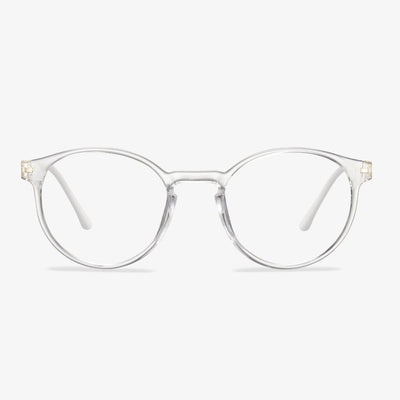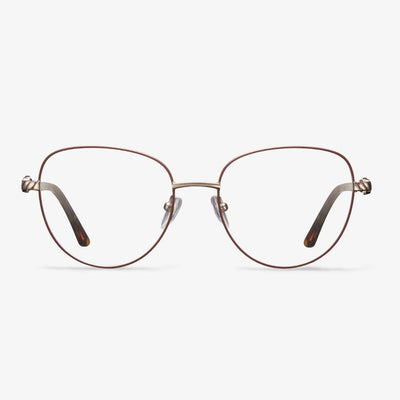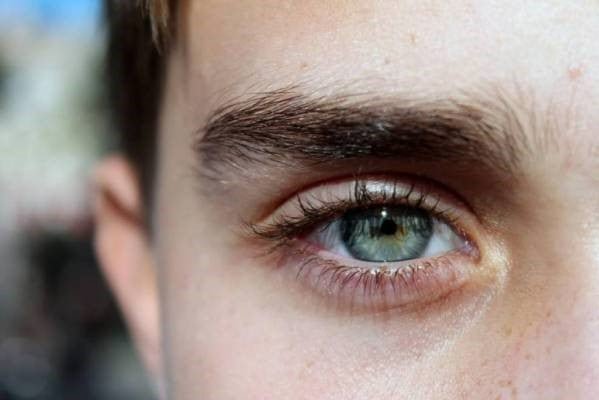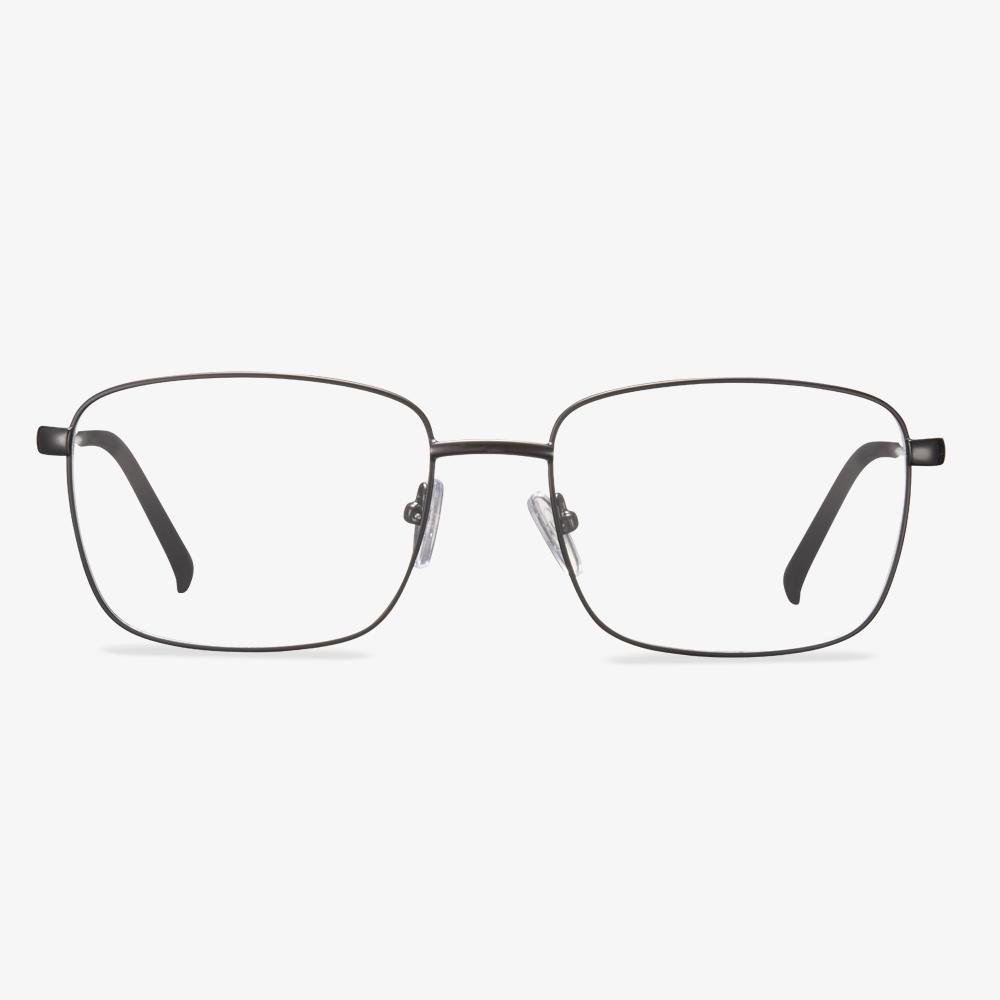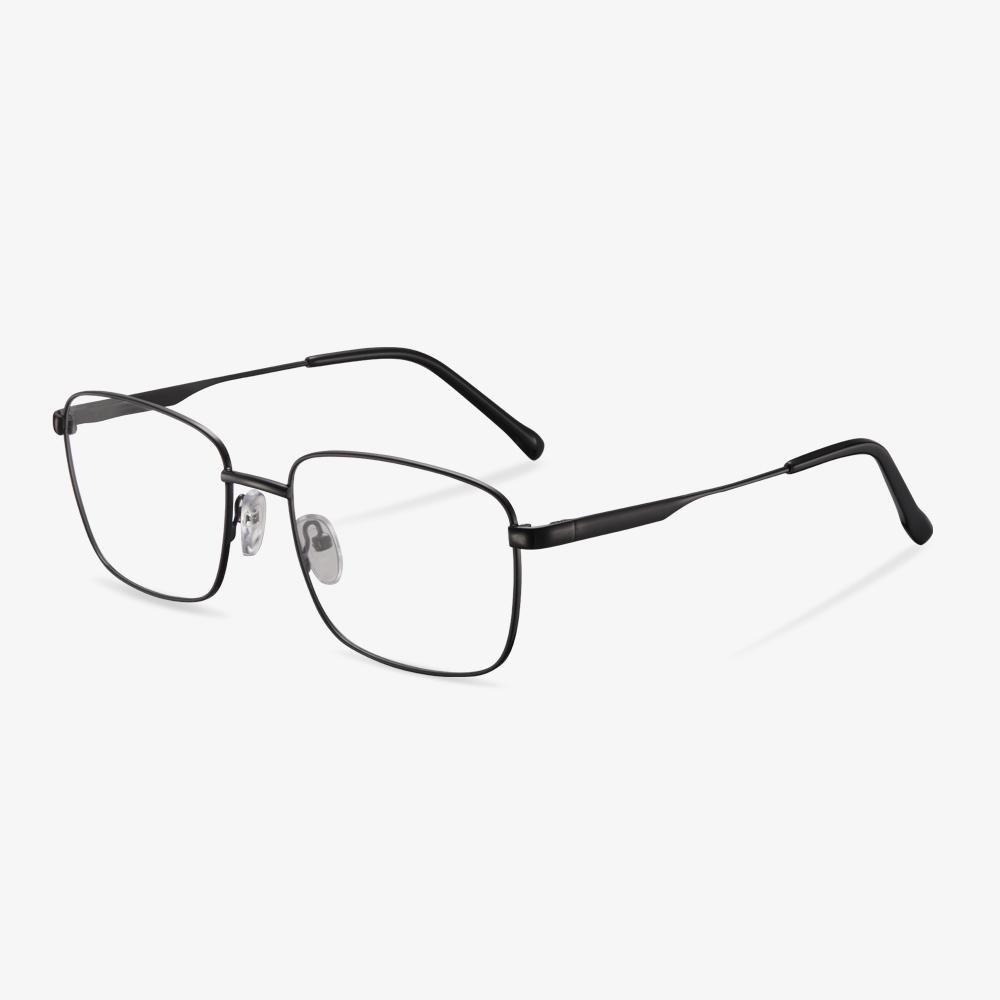Learn the 9 Necessary Parts of Glasses
Rims: the rims lend form and character to your eyeglasses and they also provide function by holding the lenses in place.
End pieces: they are small parts on the frame that extend outward and connect the lenses to the temple.
Bridge: it is the center of the frame that rests on your nose and joins the two rims together.
Hinges: hinges sit between the end pieces and the temple, allowing you to close your glasses folding the temple inward.
Lenses: lenses are the essential parts of eyeglasses. They are clear pieces of glasses, plastic or other lens materials held in place by the rims. The lenses are crafted and shaped with your unique prescription to help you to see clearly.
Screws: they are the small metal fasteners near the hinges and they are used to connect the end pieces with the temples.
Nose pads: nose pads give your glasses a more comfortable and secure fit. They are the round plastic pieces under the bridge that sit on your nose.
Pad arms: pad arms are able to extend from the rims and hold the nose pads in place. They are adjustable to fit the natural shape of your face.
Temples: temples are the long arms on both sides of the frame that fit over your ears for a snug fit.
These are all the 9 essential parts of eyeglasses. Knowing the name of parts of glasses can help you to repair them once they are broken or crooked.
What Should Be Considered When Buying Blue Light Glasses?
Be wary of “eye protection” claims. Some businesses advocate their anti-blue light products how miraculous.
Do not try the lens from the unknown lens manufacturer or lens factory. A professional lens factory needs more than ten years or even decades of accumulation, so do not be blinded by dazzling pictures and brand image.
Understand the basic knowledge of prescription of glasses
The prescription mainly includes the refractive status of the eye, degree of correction required, pupil distance, and the purpose of using the lens. Nowadays, there are many brands and varieties of glasses. Glasses are usually classified according to the material, structure, and use of the lens. Most of the glasses in the prescription are classified by structure. Nowadays, single vision glasses and multi-focal glasses are mainly used, and multi-focal glasses include bifocal glasses, three-lens glasses, and progressive multifocal lenses.
Method of wearing the contact lens
Wash your hands before putting on contact lenses, and be careful not to leave long nails, to avoid contamination of the lens by bacteria and nail scratches. Place the contact lens on the tip of your index finger, face-up, and pull your upper and lower eyelids apart with the middle fingers of both hands. Look straight ahead and place the lens gently into the eye (attached to the cornea). Remove the index finger and look down so that the lens is attached to the cornea, and slowly relax the eyelids with the middle fingers of both hands. Blink gently several times (or roll your eyes) to remove bubbles.
Reading Glasses by SCOJO New York, Original Gels Readers, Rimless Oval Glasses
They are high-end non-prescription reading glasses for women and men. They are well made and comfortable to wear. They use lightweight, ultra-durable TR-90 class plastic (a thermoplastic material that is flexible and can bend under pressure without breaking). The flexible lightweight glasses are for maximum comfort. Corrosion resistance, optical quality, there is no distortion. The acrylic lens, at any angle, has an extremely high definition.
What is the best lens material?
MR stands for Mitsui Resin, a raw material for optical lenses made by Mitsui Chemicals in Japan. It is the first high refractive index lens material produced by polyurethane technology in the world. It has the characteristics of high refractive index, high Abbe number, low specific gravity, high impact resistance, and so on. MR series material, with high impact resistance, good tensile strength, and minimal internal stress, is very suitable for the unique design of lens products, like rimless glasses and high bending lenses, etc. At the same time, it has good processing, dyeing, and weather resistance.
Choose clear glasses with the right materials for kids.
A critical point for children to choose frames is to think about the weight, to avoid wearing for a long time, or they will be uncomfortable, unstable, easy to slip. It is recommended to choose an ultra-light plate or TR90 lens frame, which has good chemical properties, good thermal stability, with no deformation, good recovery, and no side effects, lightweight, and convenient material.




















